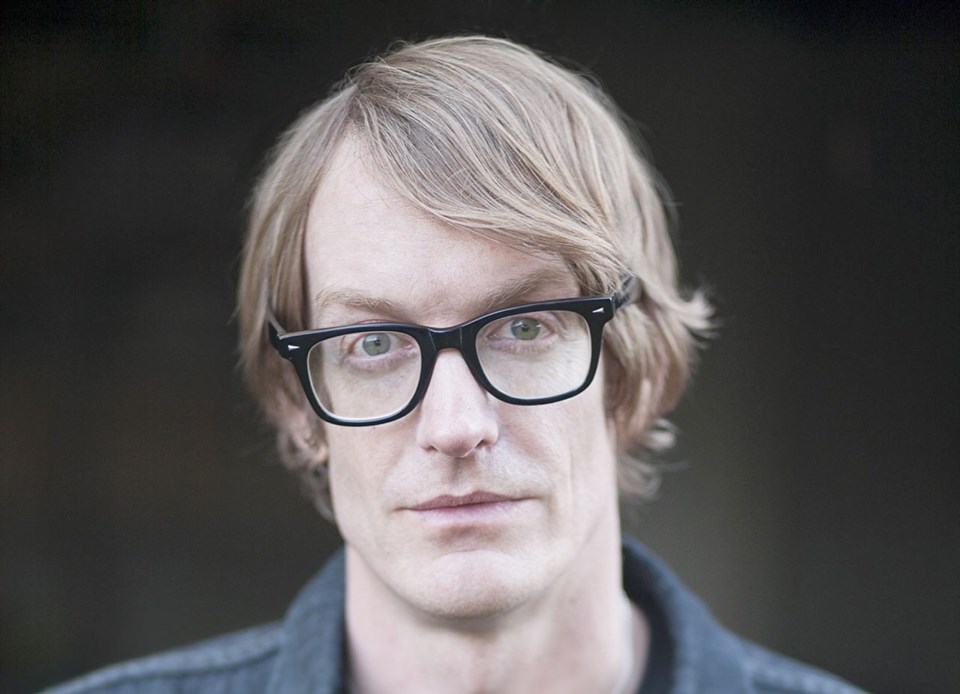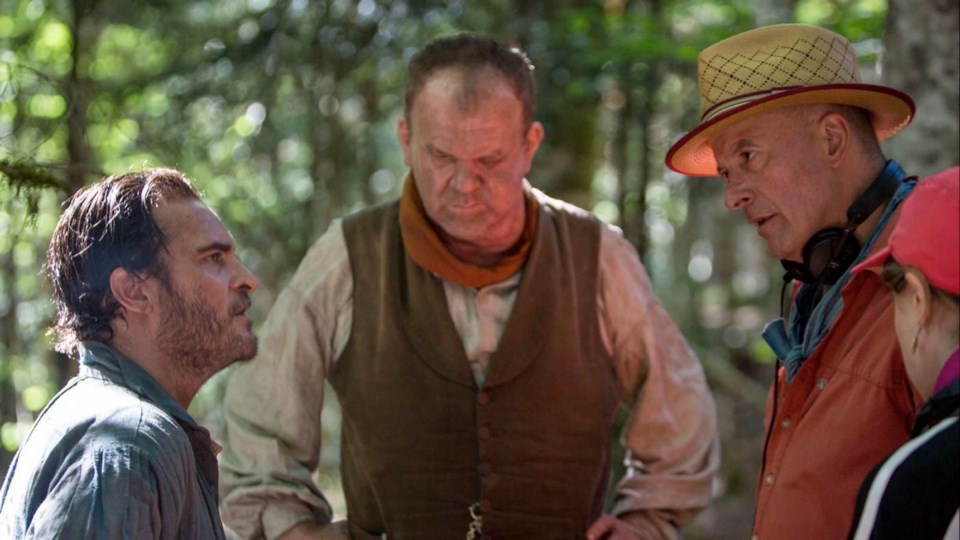What: The Sisters Brothers
Where: Capitol 6, 808 Yates St.
Rating: 14A
Note: DeWitt will also appear Oct. 20 for a reading at Munro’s Books, 1108 Government St.
A recent three-week book tour that sent Patrick deWitt to England, France, and the U.S. has the writer feeling a little punch drunk. Tired, to be sure. But he’s far from timed-out.
Amid countless interviews revolving around the screen adaptation of his award-winning book, The Sisters Brothers, which opened at Victoria’s Capitol Six on Thursday, along with yet more press surrounding his recently released fourth novel, French Exit, the author has been a must-get for media outlets. He was pleased to step out of the limelight for a few days last week, in order to do some renovations on his home in Portland, Oregon.

He is no stranger to this sort of work ‚ÄĒ deWitt‚Äôs father and brother are both carpenters ‚ÄĒ so swinging a hammer for a few days seemed the perfect salve after writing tens of thousands of words on a computer over the past decade or so. ‚ÄúI know how to do it all, more or less, but I‚Äôm nowhere near as talented as my brother is, so I‚Äôm definitely leaning on him.‚ÄĚ
DeWitt, 43, won’t be able to hide from responsibilities for much longer. He has a full schedule of appearances on his itinerary, including an Oct. 20 stop at Munro’s Books in Victoria, where he will read from French Exit. The book, which has already made the final shortlist for the 2018 Scotiabank Giller Prize, has put deWitt’s name back into circulation as one of the most acclaimed writers of his generation.
DeWitt has already written the screenplay for French Exit, which will be brought to the screen by director Azazel Jacobs, for whom deWitt wrote the script to his 2011 film Terri. DeWitt began writing the screenplay for French Exit immediately after the book was completed and sent to his publisher. DeWitt said the screenplay was written before advance reader copies of French Exit were even printed, a laser-quick turnaround.
He enjoyed flexing a different set of muscles, after the laborious process of writing the book, he said. ‚ÄúWhat they tell authors when a book is going to be made into a film is that the movie will be its own thing. It will be related, but one is not necessarily a mirror image of the other. You‚Äôre going into this process understanding that on an intellectual level, but to come to emotionally accept it is something that takes time.‚ÄĚ
Jacobs played a key role in getting The Sisters Brothers made. During the filming of Terri, he passed along a copy of the newly published book to Terri star John C. Reilly, who quickly secured its rights for film (Reilly stars with Jake Gyllenhaal and Joaquin Phoenix in The Sisters Brothers, and is credited, along with his wife, Alison Dickey, as co-producer). It was a similarly quick turnaround for The Sisters Brothers, which follows two hired guns on the hunt during the California Gold Rush. The film was in development soon after the book was published in 2011, which meant deWitt was well prepared after a seven-year wait to see it in theatres.
Though a part of him feared the worst, it was ultimately an enjoyable experience, deWitt said. ‚ÄúI know a lot of authors in my position get to the point of seeing the movie and are disheartened or angry, but I didn‚Äôt experience any of these big negatives. In fact, I‚Äôve come to love the film wholeheartedly.‚ÄĚ
The Sisters Brothers was shot in Spain and Romania, and is directed by French director Jacques Audiard, who is making his English-language debut. Audiard has yet to make a film that he does not also write, so deWitt knew early on that he would not be adapting The Sisters Brothers for the screen. ‚ÄúEven though I knew I probably wouldn‚Äôt be able to work on the script, I wanted to go ahead with it because I‚Äôm such a fan of Jacques‚Äô work. Which isn‚Äôt to say it doesn‚Äôt have its challenges. Jacques‚Äô version of the universe of the book is not the mirror image of my version. I never thought it would be, but it takes a¬†minute to digest.‚ÄĚ
DeWitt was born in Sidney (‚ÄúI was named after Dr. Patrick something or other,‚ÄĚ he said) and lived on Salt Spring Island for a short time when he was a toddler. He spent the majority of his young life bouncing between Vancouver and southern California until he was 20, when he made Los Angeles home. DeWitt has been based in Portland since 2010, and though he is Canadian by birth, is now considered a U.S. citizen.
When asked if he identifies with one country more than the other, he responded somewhat ambiguously. ‚ÄúI don‚Äôt sit around considering my American identity. Now, more than ever, it‚Äôs something you want to keep a remove from.‚ÄĚ
Of his four books, deWitt‚Äôs most decorated is The Sisters Brothers, which won the Stephen Leacock Medal, the Governor General‚Äôs Literary Award for Fiction, and the Rogers Writers‚Äô Trust Fiction Prize, and was shortlisted for the Man Booker Prize and the Scotiabank Giller Prize. Praise for French Exit, a story about a mother and her 32-year-old son and their attempts to outlive the family‚Äôs financial patriarch, has been robust, but slightly less effusive. His deftly written comedy is ‚Äúso mannered, so arch, that even intimate moments are barbed with slyly traded quips,‚ÄĚ according to a review by Anna Mundow of the Washington Post.
As for how the language will translate to a feature film, deWitt was unnerved. ‚ÄúIn terms of books to adapt, I think mine are probably among the easier because of the dialogue. So much of the story is told through what people say to each other, and those scenarios are quite visual. My work, in a general sense, lends itself to the medium for sure.‚ÄĚ
So, could he see himself as a full-time screenwriter one day, leaving the printed page behind? ‚ÄúThe things that I do I do because I want to do them, not because I feel obligated to or the pay is good,‚ÄĚ deWitt said bluntly.
‚ÄúI want to maintain that, which could lead me any number of places. Whatever floats my boat in a given moment, that is going to be my focus. I pray that I can continue for that to be the sole criteria. Perhaps that‚Äôs foolish, but that‚Äôs the goal anyway.‚ÄĚ



